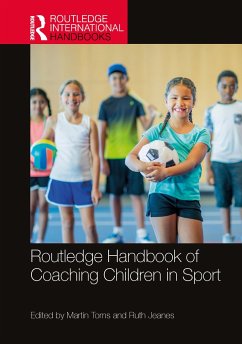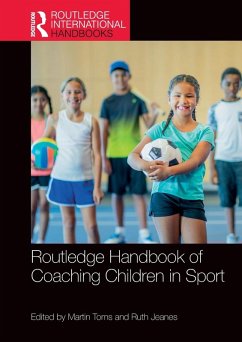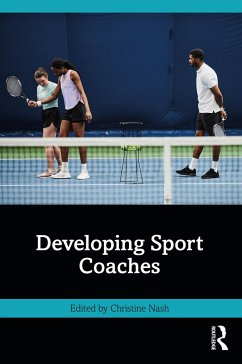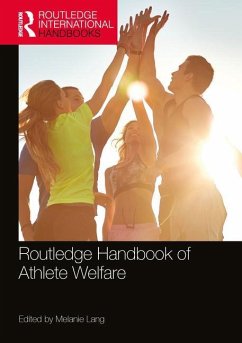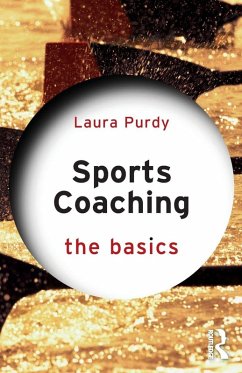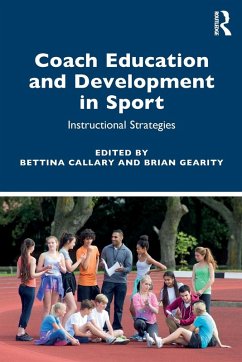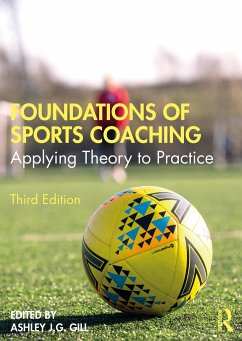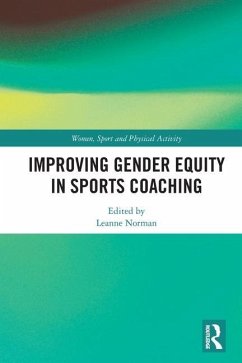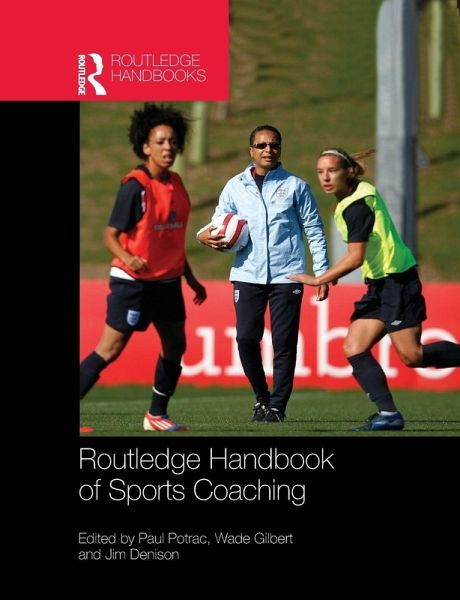
Routledge Handbook of Sports Coaching

PAYBACK Punkte
29 °P sammeln!
Over the last three decades sports coaching has evolved from a set of customary practices based largely on tradition and routine into a sophisticated, reflective and multi-disciplinary profession. In parallel with this, coach education and coaching studies within higher education have developed into a coherent and substantial field of scholarly enquiry with a rich and sophisticated research literature.The Routledge Handbook of Sports Coaching is the first book to survey the full depth and breadth of contemporary coaching studies, mapping the existing disciplinary territory and opening up impor...
Over the last three decades sports coaching has evolved from a set of customary practices based largely on tradition and routine into a sophisticated, reflective and multi-disciplinary profession. In parallel with this, coach education and coaching studies within higher education have developed into a coherent and substantial field of scholarly enquiry with a rich and sophisticated research literature.
The Routledge Handbook of Sports Coaching is the first book to survey the full depth and breadth of contemporary coaching studies, mapping the existing disciplinary territory and opening up important new areas of research. Bringing together many of the world's leading coaching scholars and practitioners working across the full range of psychological, social and pedagogical perspectives, the book helps to develop an understanding of sports coaching that reflects its complex, dynamic and messy reality.
With more importance than ever before being attached to the role of the coach in developing and shaping the sporting experience for participants at all levels of sport, this book makes an important contribution to the professionalization of coaching and the development of coaching theory. It is important reading for all students, researchers and policy makers with an interest in this young and flourishing area.
The Routledge Handbook of Sports Coaching is the first book to survey the full depth and breadth of contemporary coaching studies, mapping the existing disciplinary territory and opening up important new areas of research. Bringing together many of the world's leading coaching scholars and practitioners working across the full range of psychological, social and pedagogical perspectives, the book helps to develop an understanding of sports coaching that reflects its complex, dynamic and messy reality.
With more importance than ever before being attached to the role of the coach in developing and shaping the sporting experience for participants at all levels of sport, this book makes an important contribution to the professionalization of coaching and the development of coaching theory. It is important reading for all students, researchers and policy makers with an interest in this young and flourishing area.





